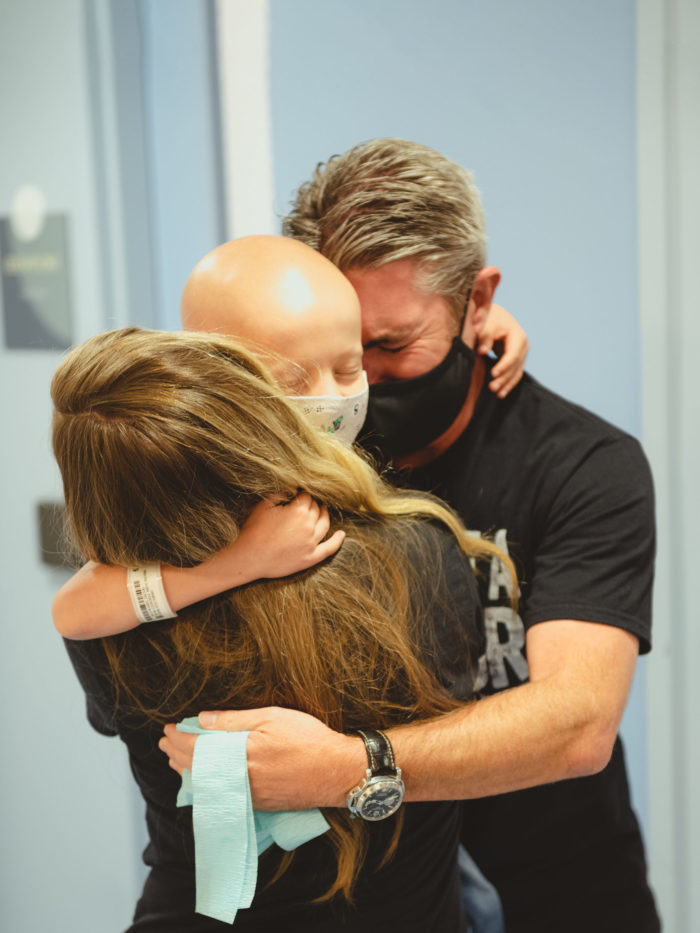It’s no secret that children often model their parents’ behavior and habits. As many adults make New Year’s resolutions in areas like health, productivity and self-care, it’s a good opportunity to talk to your kids about setting and sticking to good habits.
The American Academy of Pediatrics offers a list of new year’s resolutions ideas for preschoolers through teenagers.
Below, members of our Teen Advisory Council share their New Year’s resolutions, plus how they plan to stick to them. We’d love to hear your family’s resolutions—let us know in the comments below!
Zoe Borchard
To me, New Year’s resolutions are a fantastic idea, but most people don’t have time for the kinds of commitments they set.
Now this isn’t to say that all resolutions are unattainable, it’s simply necessary to start small when planning for the new year. Don’t bite off more than you can chew.
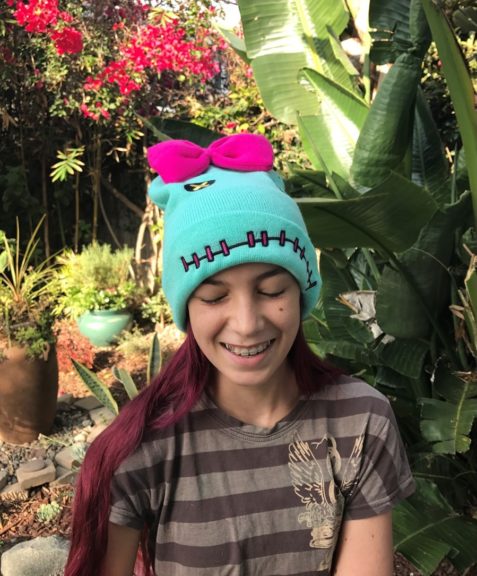
Good resolutions to start with vary from person to person, so you should ask yourself the question: “What have I always wanted to improve in my life?” Loaded question, right? Just spend a minute reflecting on it. I’ll use myself as an example, I’ve always wanted to get more organized, so in the new year, I’d like to make that happen in all aspects of my life.
It’s a lot to ask of myself to organize everything in my life and then keep it as a habit, so I’ll start with small things and work up to it. I could say things like I’m going to organize my school binders with subject dividers, I’m going to write down my activities in a daily planner, etc.
It shouldn’t be too hard to keep up if you started small, but something I always remember is that it only takes one day to break a habit, and 21 days to make another one. It’s also important to remember that you will never regret doing something good for yourself. Keeping these things in mind, you have all the tools you need to make and keep your resolutions this year! Remember to dream big, plan small, and most importantly, believe in yourself!
Layla Valenzuela
A new year is a time to go back and look over what we’ve accomplished, and in what areas we fell short. New Year’s resolutions are a great way to change little things that we would like to improve, and to add new things to improve our lives. However, we must be rational when making these goals. So, here are some ways that I brainstorm my own resolutions:
- Be realistic. While making goals, we have to remember to outline practical ideas. Saying that we will be millionaires by the end of the year is not 100 percent realistic. Think about who you are, and if you can see yourself fulfilling your goal, then go for it!
- Remember your goals. In order to keep your goals top of mind, try writing them down somewhere where they can be seen daily. Or, set a reminder on your smartphone. Just remind yourself of your goals and slowly incorporate them into your daily life.
- Don’t push too hard. This is where New Year’s resolutions can get dangerous. Especially for teenagers, we cannot set goals that we know can be risky. For example, I know that many adults tend to set goals to lose a certain amount of weight. A healthier goal for teens could be incorporating healthy habits like exercise into your daily routine.
- Think of what you want for yourself, not what other people want. Don’t let peer pressure affect your goal setting in a negative way.
- On the less serious side of things, create a resolution that makes you happy. My New Year’s Resolution is to do things that will make me happy. I am not going to listen to music that I don’t like just because everyone else likes it. I am trying to set up a healthy, exciting, and positive lifestyle for the new coming year
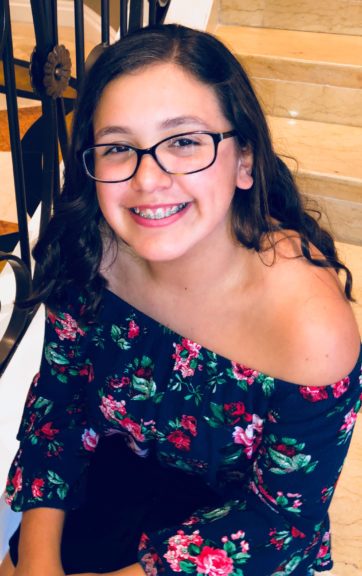
Heather Bisset
I set goals for myself throughout the year, but have some trouble completing them because it’s hard to set a timeline or end date for something that will help me personally. I usually have better luck accomplishing my goals when I can hit refresh on a new year, with a clear roadway ahead of me.

Remember to break down larger goals into smaller steps. For example, say my goal was to do better in school. That’s a big goal, and I would break it down into smaller increments. For this goal, I would make a checklist that would have multiple steps including:
- study for an hour every day for a week leading up to a test;
- work on homework before practice instead of after;
- put my phone away when doing homework or studying.
Setting big goals can feel overwhelming, and they are easier to accomplish if you break them down into smaller pieces. Plus, crossing off tasks—even small ones– on a checklist feels rewarding.
To stick to my goals, I tend to set reminders on my phone. I also tell my friends or peers about my goals, if they see me steering away from my resolution, they can kindly remind me to get back on track.
This year, my resolutions are to stop biting my nails, to be more consistent with completing my household chores, to stay off my phone more, and to stop drinking soda. These are all simple things that will make me happier with myself.
Cameron Macedonio
I see New Year’s resolutions as kind of obsolete, as they’re often times not followed. If you want to change something about yourself, you don’t have to wait for a new year.
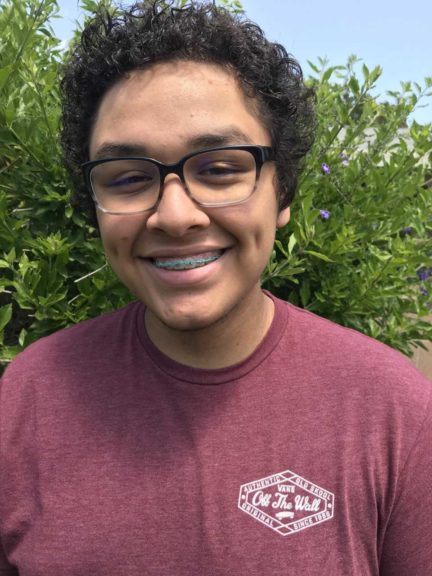
To set realistic goals, know your limits. It’s totally acceptable to want to push your limits but be realistic. Try consulting a friend or loved one before setting a big goal so they can try to talk about a game plan with you.
Also, don’t stress if you cannot complete your goals! Life is full of trial and error; embrace your failure and learn from it. Don’t be afraid to fail. Failure is normal, and it doesn’t make you a loser or a complete failure; just persist past your misfortune and use it as fire to drive you to success.
Even though I don’t really have a New Year’s resolution this year, I am just working hard to keep my head in the right place and be ready for any extra challenges that may come my way.
Sanam Sediqi
New Year’s resolutions are a good way to set healthy and positive goals for the next chapter in your life. However, setting unrealistic goals that are hard to reach can give way to self-doubt and feeling like a failure
My best advice is to set easy-to-achieve resolutions that will make a positive change in your life. When setting resolutions, don’t put too much pressure on yourself. For example, tell yourself you’re going to work hard and pass your classes. Or that you’re going to spend more time with your family, or you’re going to try and eat healthier. It’s always good to tell yourself to try. Even if you don’t succeed you know you tried at the least.
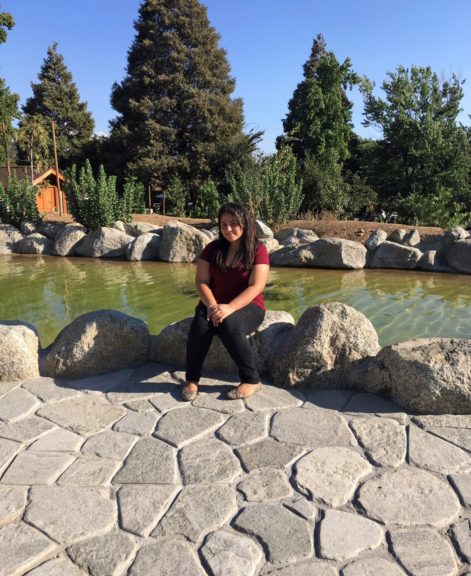
One way to stick to your goal, and something I plan on doing this year, is to make a vision board. Keep this in your bathroom or bedroom as a daily reminder why you’re doing what you’re doing. I believe that having a little reminder every day is what it takes to stick to your goal and to keep pushing.
My New Year’s resolution is definitely to try new things, and to get to know more people. I would also like to become a healthier version of myself, as well as go to college, get my license and spend more time with my family. To me, these are goals I believe I can reach and I can’t wait to accomplish them.



